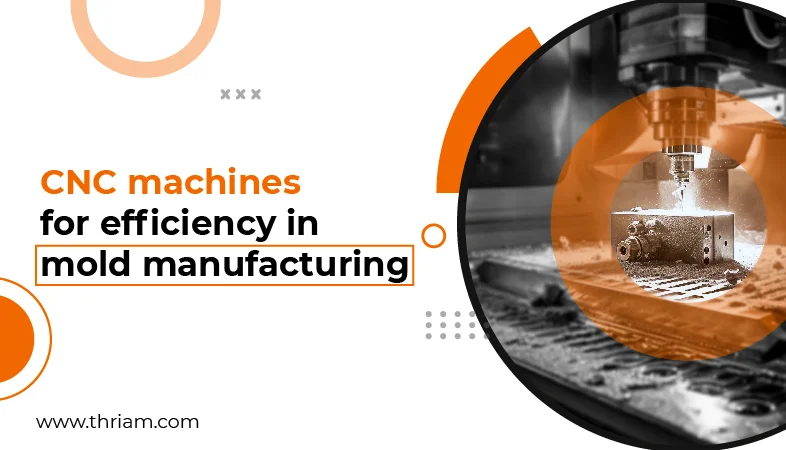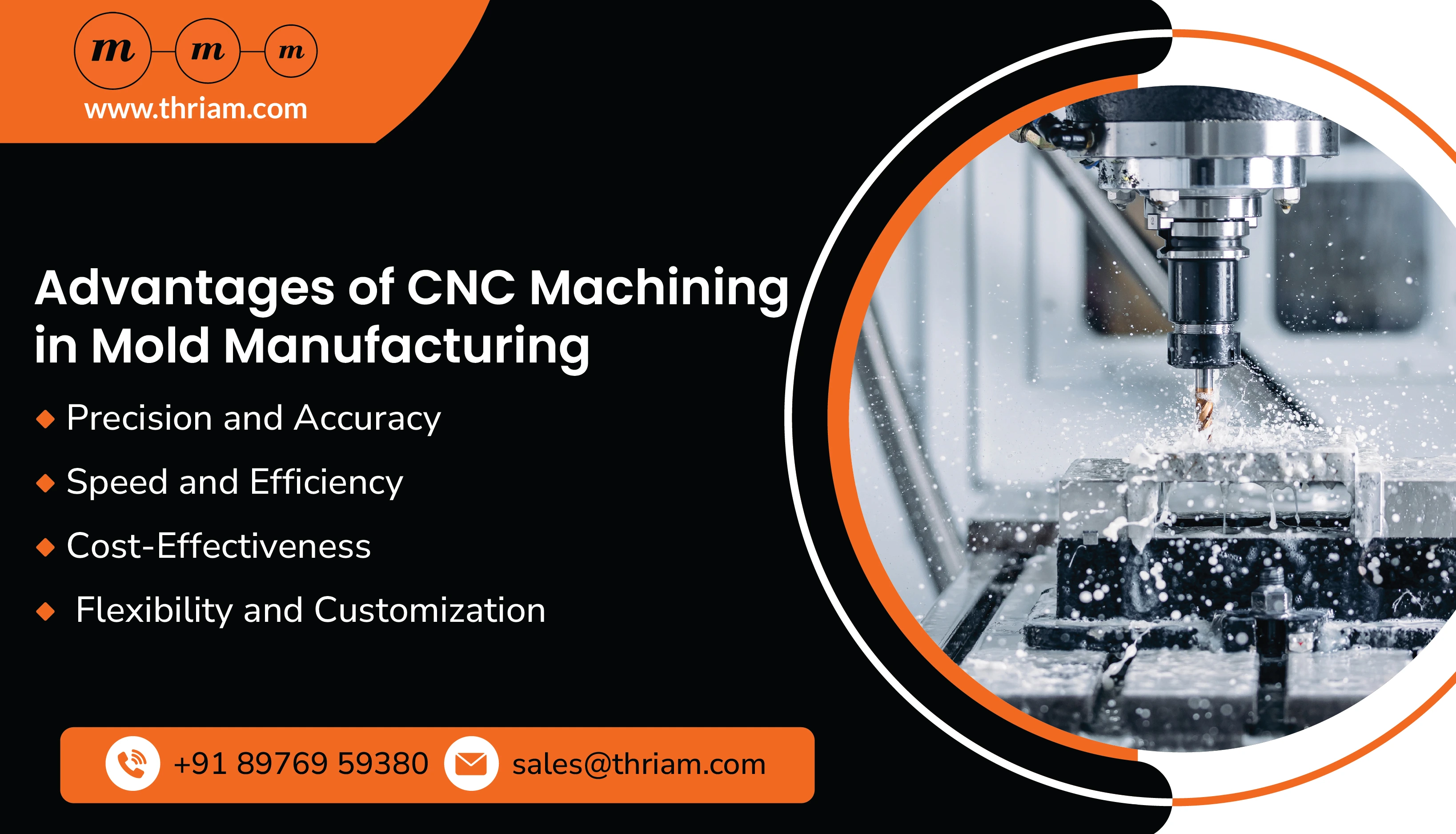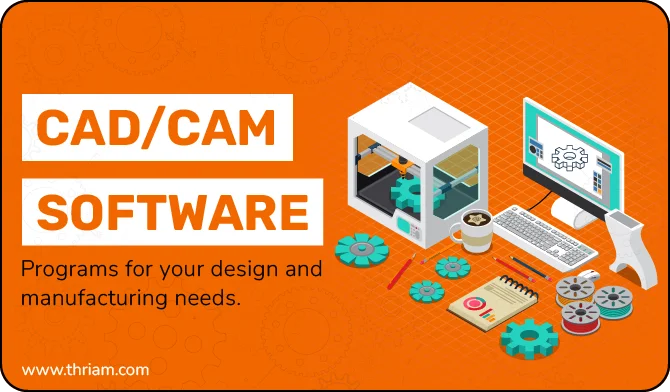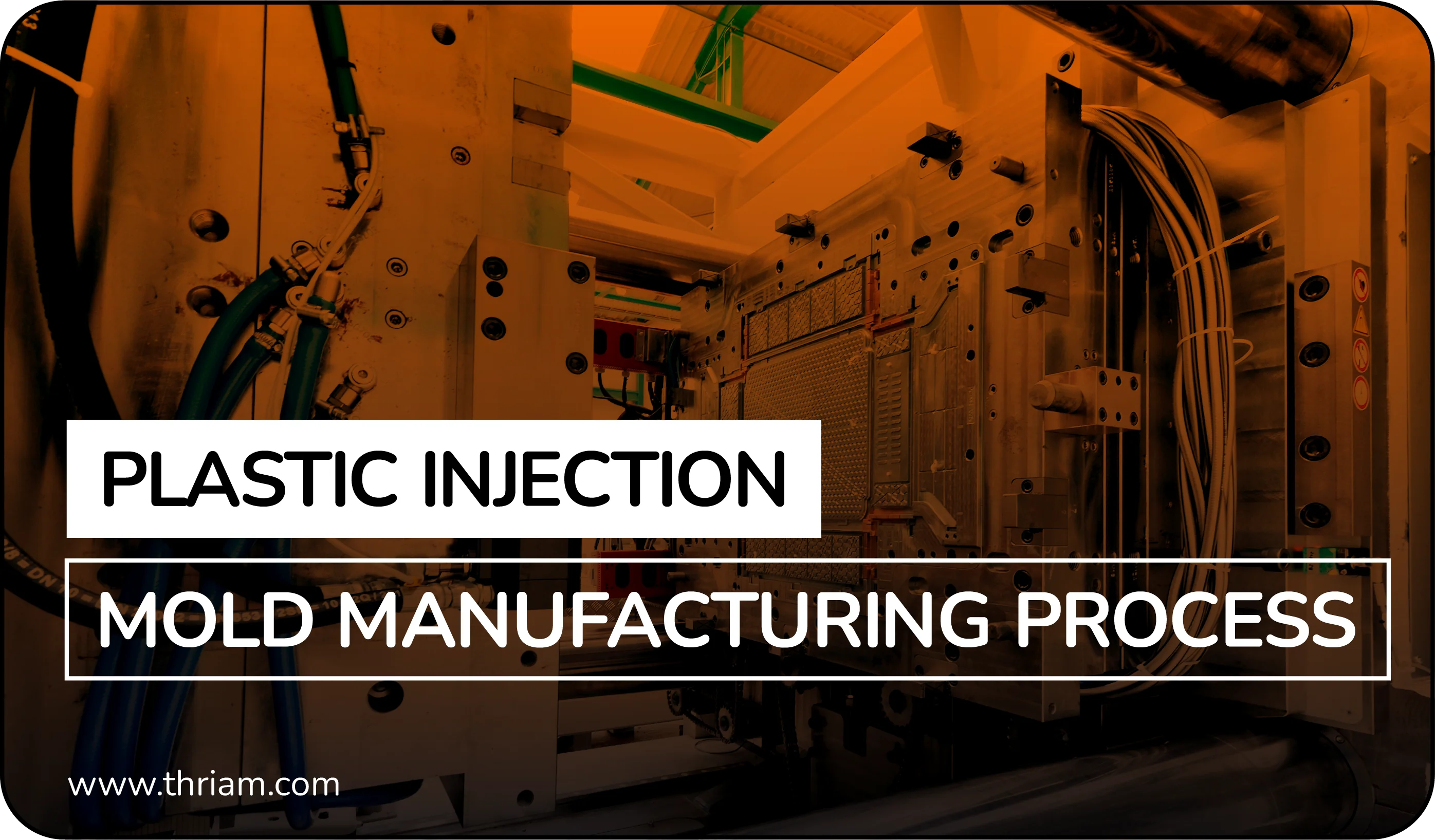Precision at its Finest: The Benefits of Using CNC Machines in Mold Manufacturing

In today's rapidly evolving manufacturing industry, the use of computer numerical control (CNC) machines has revolutionized the accuracy, speed, efficiency, and customization capabilities in various manufacturing processes. One area where CNC machining has made a significant impact is in mold manufacturing. By utilizing CNC machines, mold manufacturers can enjoy numerous benefits that enhance their productivity and overall efficiency. This blog explores the advantages of using CNC machines in mold manufacturing and sheds light on the transformative potential of this technology.
Understanding CNC Machining:
CNC machining, short for computer numerical control machining, is an automated manufacturing process that utilizes computer software to control the movements and actions of machines. It involves the use of pre-programmed instructions to control the cutting, shaping, and machining of materials with a high level of precision and accuracy. CNC machines operate on multiple axes and can execute complex tasks with speed and efficiency. This technology has revolutionized various industries by significantly improving productivity, reducing human error, and enabling the production of intricate and customized components.
How CNC machines work in mold manufacturing:
In mold manufacturing, CNC machines play a crucial role in shaping and machining molds with great precision and efficiency. These machines follow a step-by-step process to transform a digital design or model into a physical mold. Firstly, the mold design is created using computer-aided design (CAD) software. The CAD file is then converted into a format that CNC machines can understand. The CNC machine uses this information to control various cutting tools, such as drills and milling machines, to shape the mold. The machine's movements are guided by pre-programmed instructions, allowing for accurate and consistent machining. The result is a high-quality mold that meets the exact specifications of the digital design, ready for use in various manufacturing processes. CNC machines eliminate the need for manual labor, reduce errors, and significantly improve the speed and efficiency of mold manufacturing.
Advantages of CNC Machining in Mold Manufacturing:

1. Precision and Accuracy:
CNC machines ensure exceptional precision and accuracy in mold manufacturing. Computer-aided design (CAD) software is used to create detailed digital models, which are then converted into instructions for the CNC machine. This eliminates the errors inherent in manual operations, resulting in superior quality molds with consistent dimensions.
2. Speed and Efficiency:
CNC machines significantly enhance the speed and efficiency of mold manufacturing processes. With automation, CNC machines can complete intricate machining tasks at a much faster pace than traditional methods. Additionally, their ability to handle complex designs means molds can be produced with intricate details and fine finishes that would be challenging to achieve manually.
3. Cost-Effectiveness:
Despite the initial investment costs associated with CNC machines, they offer long-term cost-effective benefits in mold manufacturing. CNC machines optimize material usage, resulting in minimal waste. Furthermore, labor costs are reduced as fewer operators are needed to oversee the machines. This leads to increased efficiency and ultimately lower production costs.
4. Flexibility and Customization:
CNC machines offer unparalleled flexibility and customization capabilities. They can produce different types of molds, ranging from small to large, with ease. Moreover, setup and changeover times are significantly reduced compared to traditional manufacturing methods, allowing for agility in adapting to changing customer needs and demands.
Limitations and Challenges:
While CNC machining offers numerous advantages for mold manufacturing, it is important to acknowledge its limitations and challenges. One limitation is the complexity of certain mold designs that may require intricate features and tight tolerances. CNC machines may struggle to achieve these specifications, resulting in compromised accuracy or extended machining times. Another challenge lies in the high initial cost of acquiring CNC machines and the need for skilled operators to program and operate them effectively. Additionally, large-scale mold production can be limited by the size constraints of CNC machines, restricting the manufacturing of larger molds. Material selection is also a consideration, as some materials may be difficult to machine with CNC technology. Despite these limitations, ongoing advancements in CNC technology and process optimization are mitigating these challenges, making CNC machining an increasingly viable option in mold manufacturing.
Advancements in CNC technology:
Advancements in CNC machine technology have continuously pushed the boundaries of precision, efficiency, and versatility in manufacturing. One major advancement has been the integration of artificial intelligence (AI) and machine learning algorithms into CNC machines. This allows for real-time monitoring and adaptive control, optimizing the machining process and adjusting parameters to achieve the best results. Additionally, improvements in sensor technology enable more accurate measurements and feedback, enhancing the overall accuracy and quality of machined parts. Furthermore, advancements in automation have simplified setup and changeover times, reducing downtime and increasing productivity. The integration of advanced software and connectivity options also allows for seamless integration with other systems, facilitating data exchange and streamlining production processes. These advancements in CNC technology continue to drive innovation and revolutionize manufacturing industries across the globe.
Conclusion
CNC machining has brought about revolutionary changes in mold manufacturing. The precision, speed, efficiency, cost-effectiveness, flexibility, and customization capabilities offered by CNC machines have transformed the industry. By embracing this technology, mold manufacturers can stay ahead of the competition, produce high-quality molds, and meet the ever-changing demands of the market. As CNC machines continue to evolve, their potential to revolutionize the manufacturing industry as a whole becomes even more promising.
Bonus content
Other use cases of CNC machining
Automotive Industry: In the automotive industry, CNC machining is extensively used to save time and improve efficiency. For example, when manufacturing engine components, such as cylinder heads or crankshafts, CNC machines can precisely mill, drill, and bore the parts, ensuring high accuracy and reducing the need for manual labor and multiple setups. This not only saves time in the production process but also ensures consistent quality and reduces the chance of errors or defects.
Aerospace Industry: CNC machining plays a crucial role in the aerospace industry, where precision and efficiency are of utmost importance. For instance, when manufacturing aircraft structural components like wing spars or fuselage frames, CNC machines are employed to mill, drill, and form the complex shapes required. By using CNC machining, the time-consuming manual processes are eliminated, resulting in faster production cycles and increased productivity. This also enables better control over consistency and quality, as CNC machines can perform the same operations accurately every time, reducing the chance of errors or reworks.



